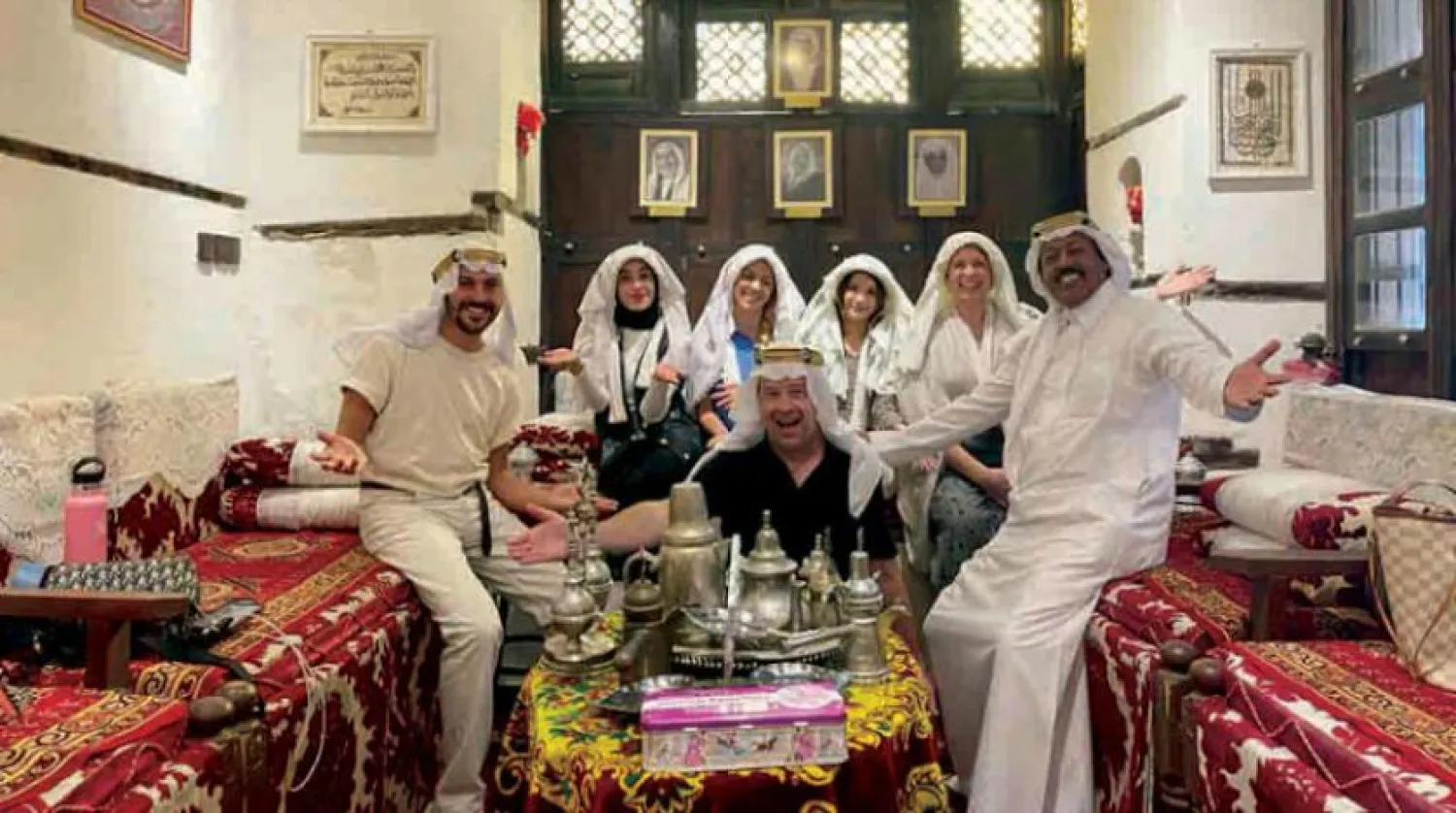Coinciding with the launch of the Red Sea International Film Festival activities in Jeddah, five new media influencers from around the world arrived in the city for an experience that gave them a new and different dimension for Saudi Arabia.
Asharq Al-Awsat accompanied the five on a special tour of Jeddah’s historic al-Balad district, registered on the UNESCO World Heritage List.
From the ancient Beit Salloum in the center of the historic district, a travel blogger from Ohio, California, Eric Stone, owner of the “Travel Babbo” website, expressed his happiness in visiting Jeddah for the first time.
Stone said he was very eager to get to know Saudi Arabia more to convey his experience to people and why they should visit Saudi Arabia. According to the travel expert, the historical city of Jeddah is beautiful and fascinating.
Stone believes that holding the Red Sea International Film Festival in its first edition in Jeddah “is a great opportunity to introduce Jeddah to the world.”
“We are happy that our presence here coincides with the establishment of the great festival,” noted stone.
He also referred to the Formula 1 Saudi Arabian Grand Prix, which was held in Jeddah last week, considering it another opportunity to highlight Saudi Arabia on the world scene with full force.
Asharq Al-Awsat then spoke to Medellin, a travel blogger from Germany, who revealed that her visit to Saudi Arabia came after her friend visited the kingdom a week ago.
“I met a friend who visited Saudi Arabia last week and told me that it is beautiful and different from what it was in the past and that it has attractive nature scenes and many special places, so I was excited to come here and see it for myself,” said Medellin who was sporting a traditional dress of the residents of old Jeddah.
In turn, Triti, an Instagram influencer from Malaysia, pointed out that the city of Jeddah is stunning.
“The city of Jeddah is charming, and I am enjoying my time here, and we still have a lot to discover,” Triti told Asharq Al-Awsat.
Muwatantha Bladely, a Malaysian Instagram influencer and actress, expressed her happiness to be present during the Red Sea International Film Festival events.
“Holding festivals of this size for the first time in Saudi Arabia is amazing,” noted Bladely.
From Italy, Roberto Rosa, an Instagram influencer, noted that this was his second visit to Saudi Arabia.
“Historic Jeddah has changed completely within three years. It has become ready to receive tourists from around the world, especially since it is registered on the World Heritage List,” he said with a smile.
Rosa asserted that holding international festivals and events such as Formula1 and the Red Sea International Film Festival is an “opportunity to tell the world about the beauty of Saudi Arabia and Jeddah in particular and the cultural and historical treasures they contain.”
For his part, travel guide Samir Qumuzani revealed that the city of Jeddah had received dozens of artists, celebrities, and film industry enthusiasts recently. This had a significant impact on the city of Jeddah, especially al-Balad.
“Celebrities from all over the world are enjoying this place and learning about its history, heritage, and originality, as they attend the various events that are held in this city that never sleeps and convey their experiences and observations to the world,” said Qumuzani.









